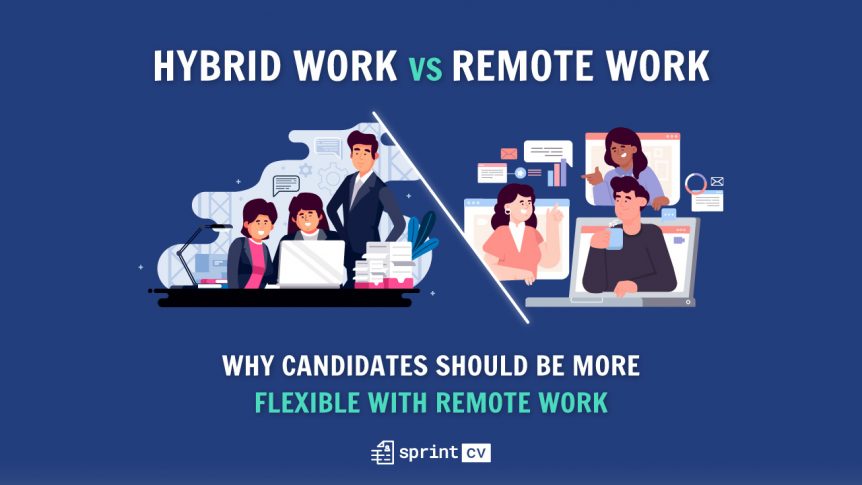
Why candidates should be more flexible with remote work
The pandemic accelerated the existing trend in remote jobs for IT professionals. It was a blessing to many, with countless advantages of working from home or anywhere in the world. While companies and recruiters are still finding their way through this new era, candidates are showing their preferences: to work full-remote. But what does full-remote really mean, and how does it affect the recruitment process? In this post, we explore why we think candidates should be more flexible when negotiating remote work.
The true meaning of “full-remote”
Full-remote work means you can fully perform your job without going to the office – at all. It allows you to always work from home or anywhere else. It allows you to always work from home or anywhere else. This trend has increased with the rise of digital nomads and lately because people got stuck at home due to COVID-19.
How full-remote can be harmful to candidates
It interferes with your recruitment process
We get it: tech professionals are in high demand, and you have high-value skills. So, during the recruitment process, you negotiate your conditions – and working full-remote is part of the package.
When a company is open to remote work – due to the pandemic context or as part of their policies – it is a positive sign. You enjoy the company’s flexibility and see it as a place where you would like to work. But, when you ask to work full remotely, you say that you want them to be 100% flexible with you, but you are not being flexible with them.
So, even though tech professionals are in high demand, there is no wonder that some recruitment processes end at this phase. Companies are being flexible, but candidates, sometimes, are not. It means recruiters exclude candidates who struggle to negotiate and find a solution that fits both.
A more democratic way to hire talent
From one point of view, working full-remote allows you to work for a company anywhere. But there is also a relevant disadvantage: companies can hire anyone from anywhere. So, instead of competing with 50 candidates from your city, you are competing with dozens of great candidates globally. It gets scary when you put it from this perspective, right?
You will be a service provider
Without personal contact between team members, it gets more challenging to maintain the company culture and team spirit (even though there are great tools and methods for this!). People don’t know you, and you don’t know them. It may seem you are not part of the team – you are a service provider. And let us be honest: if you work full remotely and have no personal contact with your team, it’s easier to get detached. It may hurt your productivity too.
The impact on salaries
This brings us to another very valid point: the salary. Hiring from anywhere in the world makes the process more democratic and soon the measure will be skills vs price. If companies can get great consultants for lower prices, it will decrease salaries overall if they adopt the full remote.
What exactly are you looking for?
We invite you to assess what remote work – really – means to you:
- Are you willing to go to the office just for meetings?
- Can you go there once per week or twice a month?
- Are you comfortable with joining your team at the office if needed?
The key to a good negotiation of your working conditions is to be flexible and make sure your priorities are straight. Assess what you value and be transparent – companies are still discovering this new reality.
The future is hybrid
We believe the future is hybrid work. For example, some companies operate 80% remotely and 20% on-site. Some established the team goes to the office when needed. Personal contact with the team is essential and will always be advantageous to building relationships. That is why companies remain keen to have the people in the office at least some days per month, to reactivate the team dynamic and relationships.
We also believe you should be somehow, like going to the office some days per month, for example. It allows you to work and get paid the salary/rate where the company is located (Belgium, Netherlands, UK, etc.). It makes it easier for you to build trust, and prove yourself a key player in the team. From there, you can ask for a higher percentage of remote work or go the days needed to the office all in the same week.
Sprint CV – your ally in finding your next tech job
 At Sprint CV, our mission is to help IT consultants improve and automate their CVs. You can generate your CV for free and in seconds at www.sprintcv.com
At Sprint CV, our mission is to help IT consultants improve and automate their CVs. You can generate your CV for free and in seconds at www.sprintcv.com
Do you want to find a remote job? Visit www.sprintcv.com/it-jobs to find your next professional challenge!